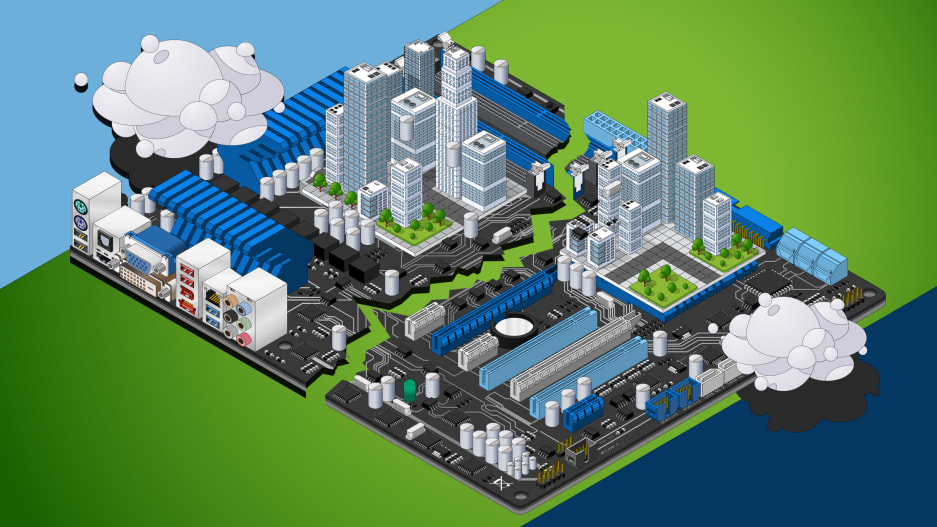|
Why High-profile Smart Cities Fail, From Sidewalk’s Quayside To Amazon’s HQ2 In Queen
Why High-profile Smart Cities Fail, From Sidewalk’s Quayside To Amazon’s HQ2 In Queens
08-10-21
By Shannon Mattern
Read More: https://www.fastcompany.com/90664283...-hq2-in-queens
Quote:
In 2015, before it metamorphosed into Alphabet, Google launched Sidewalk Labs, an “urban innovation” division dedicated to solving urban problems with “forward-thinking design and cutting-edge technology,” like networked sensors and automated systems. The following year I wrote about Sidewalk, in relation to New York City’s “smart” Hudson Yards development, where the company established its headquarters. In 2017 the company, under the leadership of Dan Doctoroff, former deputy mayor of New York City and CEO of Bloomberg LP, was commissioned to develop the Quayside area on Toronto’s waterfront. As he articulated in a 2016 Sidewalk Talk post, Doctoroff had been wondering, “What would a city look like if you started from scratch in the internet era if you built a city ‘from the internet up?’ ”
- In many public presentations since Sidewalk’s launch, he offered a bit of revisionist history that positioned his company as a catalyst for the next revolution in urban infrastructure: “Looking at history, one can make the argument that the greatest periods of economic growth and productivity have occurred when we have integrated innovation into the physical environment, especially in cities. — The steam engine, electricity grid, and automobile all fundamentally transformed urban life, but we haven’t really seen much change in our cities since before World War II. If you compare pictures of cities from 1870 to 1940, it’s like night and day. If you make the same comparison from 1940 to today, hardly anything has changed. Thus it’s not surprising that, despite the rise of computers and the internet, growth has slowed and productivity increases are so low. . . . So our mission is to accelerate the process of urban innovation.” — The team offered a plan that incorporated many of the greatest hits of 21st-century urbanism pedestrian- and bike-friendly streets, affordable housing, sustainable construction with high-tech interventions like generative design tools, enhanced fiber optics, and a “comprehensive digital map of the public realm,” much like a dashboard. Despite their attempts to accelerate urban innovation, circulation, and connectivity within the Quayside development itself, Doctoroff’s team encountered, through the design process, the (often productive) slowness and friction of government bureaucracy and democratic deliberation.
- After a long, messy process plagued by controversy over financing, governance, data privacy, and a host of other concerns, Doctoroff took again to Sidewalk Talk in May 2020 to announce that the Quayside project was pulling the plug. The purported cause: the “unprecedented economic uncertainty” wrought by COVID-19. Those economic projections could be computed, leading Doctoroff’s team to deem the project a bad bet. What was less amenable to computational modeling, however, and more likely to have shaped the project’s outcome, was public engagement and reception. “While the failure is certainly due in part to a changed world,” local Sidewalk critic and public technology expert Bianca Wylie writes, “this explanation brushes under the rug years of sustained public involvement in the project, from supporters and critics alike. From its inception, the project failed to appreciate the extent to which cities remain strongholds of democracy.” — The project’s demise seemed to mark the end of an era. Sidewalk Toronto was only the most visible of several smart city projects that had been abandoned, derailed, mothballed, or run out of town in the preceding years. High-profile developments like Songdo in South Korea, or Masdar City in the United Arab Emirates (UAE), had fallen from the headlines. New Yorkers thwarted the construction of Amazon’s HQ2, the company’s East Coast headquarters, in Queens. Alphabet walked away from its Google Fiber project in Louisville, Kentucky, and cut back its services in other municipalities.
- Designers, planners, engineers, investors, technologists, developers, and entrepreneurial city leaders had for years espoused visions of an urban future in which embedded sensors, ubiquitous cameras and beacons, networked smartphones, dashboards, and omniscient operating systems would produce unprecedented efficiency, seamless connectivity, convenience, and, for the especially well connected, the realization of what Aaron Bastani calls “fully automated luxury communism” (or capitalism: The smart city could be made to support a range of ideologies). Yet the appeal of such an urban vision, and the belief that it’s even possible, seems to have waned. — Silicon Valley moves fast and breaks things, but cities, if responsibly designed and administered, can’t afford such negligence even if multiple converging crises seem to necessitate the rapid prototyping of urban solutions. Over the next several years we’ll see what becomes of our smart city dreams, how those cameras and cables will be (re)deployed, what governments will cement or sever relationships with Big Tech contractors, and if and how all the lessons of COVID-19, #BlackLivesMatter, and the 2020 election crisis will stick with us. — Will we still aspire to build cities from the internet up, to design schools and offices and streets to accommodate the administrative logics of algorithms, to apply computational tools in tracking sick, noncompliant, or otherwise marginalized urban subjects? Will we sustain Doctoroff’s vision of the city-as-computer? Or will other models, metaphors, or modes of operation arise and what will their epistemological and political implications be?
.....
|

__________________
ASDFGHJK
|



